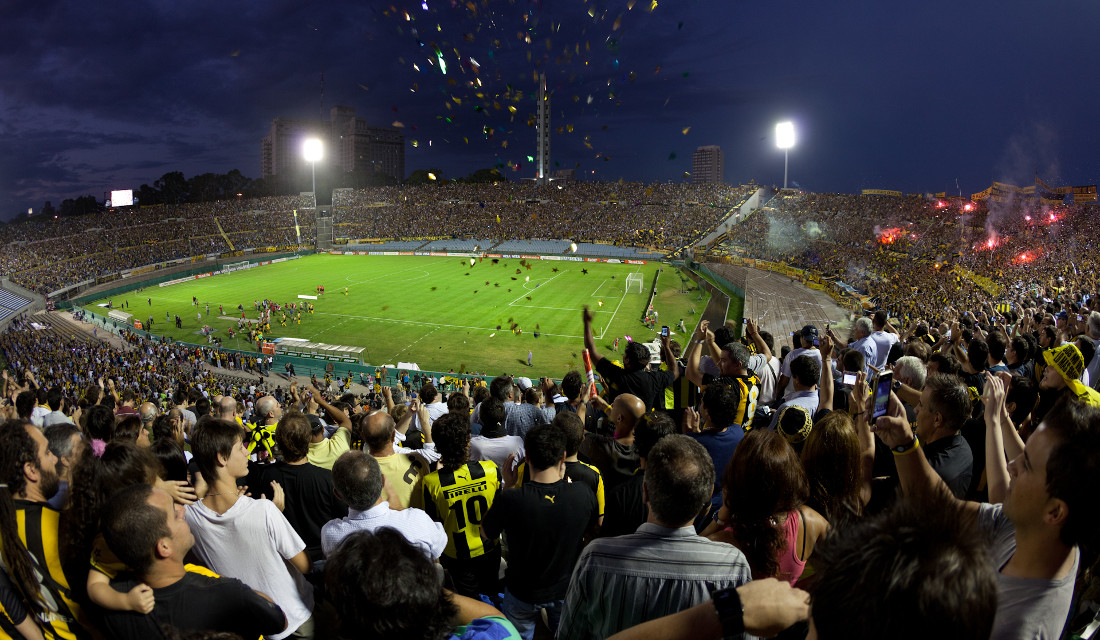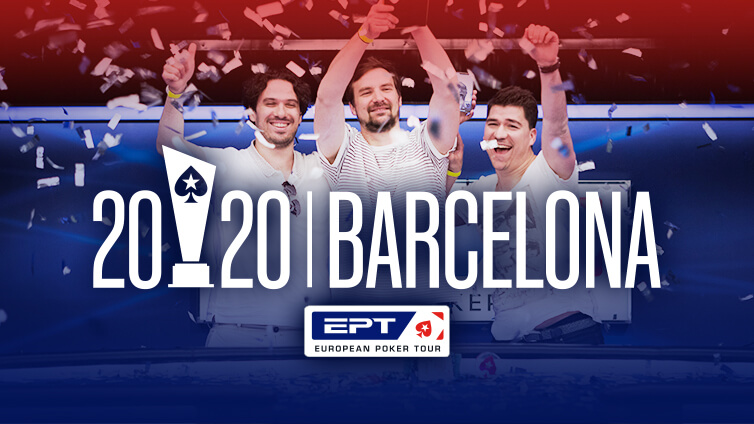World Poker Tour Player of the Year Leaderboard; Reasons to Enter a World Poker Tour Event; Brief History of the WPT. The World Poker Tour, otherwise known as the WPT, is a huge poker tournament brand that hosts many different poker tournaments around the world. The World Poker Tour was founded on May 27th, 2002 in the United States. European Poker Tour Schedule. Check back soon for more must-play EPT events coming your way. EPT Sochi – March 19-28, 2021. The EPT heads back to Russia and Sochi's picturesque surroundings. PSPC and EPT Barcelona – Postponed. Broadcasts of poker tournaments such as the World Series of Poker and World Poker Tour brought in huge audiences for cable and satellite TV distributors. Because of the increased coverage of poker events, poker pros became celebrities, with poker fans all over the world entering into tournaments for the chance to compete with them. We offer daily poker news, poker professionals' blogs and tweets, exclusive poker videos, thousands of free poker articles, as well as coverage from all major poker tournaments in the world.
The game of poker was developed some time during the early 19th century in the United States. Since those early beginnings, poker has grown to become an extremely popular pastime throughout the world.
19th century[edit]
In the 1837 edition of Foster's Complete Hoyle, R. F. Foster wrote: 'the game of poker, as first played in the United States, five cards to each player from a twenty-card pack, is undoubtedly the Persian game of As-Nas.' By the 1990s some gaming historians including David Parlett started to challenge the notion that poker is a direct derivative of As-Nas.[citation needed] There is evidence that a game called poque, a French game similar to poker, was played around the region where poker is said to have originated. The name of the game likely descended from the Irish Poca (Pron. Pokah) ('Pocket') or even the Frenchpoque, which descended from the Germanpochen ('to brag as a bluff' lit. 'to knock'). Yet it is not clear whether the origins of poker itself lie with the games bearing those names. It is commonly regarded as sharing ancestry with the Renaissance game of primero and the French brelan. The English game brag (earlier bragg) clearly descended from brelan and incorporated bluffing (though the concept was known in other games by that time). It is quite possible that all of these earlier games influenced the development of poker as it exists now.
A modern school of thought rejects these ancestries,[1] as they focus on the card play in poker, which is trivial and could have been derived from any number of games or made up on general cardplay principles.[2] The unique features of poker have to do with the betting, and do not appear in any known older game.[1] In this view poker originated much later, in the early or mid-18th century, and spread throughout the Mississippi River region by 1800. It was played in a variety of forms, with 52 cards, and included both straight poker and stud. 20 card poker was a variant for two players (it is a common English practice to reduce the deck in card games when there are fewer players).[3] The development of poker is linked to the historical movement that also saw the invention of commercial gambling.[4][5]
English actor Joseph Cowell[6] reported that the game was played in New Orleans in 1829, with a deck of 20 cards, and four players betting on which player's hand was the most valuable. Jonathan H. Green's book, An Exposure of the Arts and Miseries of Gambling (G. B. Zieber, Philadelphia, 1843), described the spread of the game from there to the rest of the country by Mississippiriverboats, on which gambling was a common pastime. As it spread north along the Mississippi River and to the West during the gold rush, it is thought to have become a part of the frontier pioneer ethos.
Soon after this spread, the full 52-card French deck was used and the flush was introduced. The draw was added prior to 1850 (when it was first mentioned in print in a handbook of games).[7] During the American Civil War, many additions were made including stud poker (the five-card variant), and the straight. Further American developments followed, such as the wild card (around 1875), lowball and split-pot poker (around 1900), and community card poker games (around 1925).

Early books discussing poker[edit]
- Hildreth, J. (1836) Dragoon Campaigns to the Rocky Mountains, Wiley & Long, New York: mentions poker
- Green, Jonathan H. (1843). Exposure of the Arts and Miseries of Gambling, Philadelphia: Zieber
- Cowell, Joe (1844). Thirty Years Passed Among the Players in England and America
- Anners, Henry F. (1845) Hoyle’s Games: refers to Poker or Bluff, 20-deck Poker, and 20-deck Poke
- Bohn, Henry George (1850) New Handbook of Games: stated the rules of poker in print for the first time
- Dick, Willium B. (1866) The American card player
- Trumps (1868) The Modern Pocket Hoyle New York: Dick & Fitzgerald
- Steinmetz, Andrew (1870) The Gaming Table: Its Votaries and Victims, London: Tinsley Brothers
- Schenck, Robert C. (1872)Rules for Playing Poker, private circulation
- Winterblossom, Henry T (1875) The Game of Draw Poker Mathematically Illustrated
- Blackbridge (1875) The Complete Card Player
20th century[edit]
Developments in the 1970s led to poker becoming far more popular than it was before. Modern tournament play became popular in American casinos after the World Series of Poker began, in 1970.[8] Notable champions from these early WSOP tournaments include Johnny Moss, Amarillo Slim, Bobby Baldwin, Doyle Brunson, and Puggy Pearson. Later in the 1970s, the first serious poker strategy books appeared, notably Super/System by Doyle Brunson (ISBN1-58042-081-8) and Caro's Book of Poker Tells by Mike Caro (ISBN0-89746-100-2), followed later by The Theory of Poker by David Sklansky (ISBN1-880685-00-0).
Poker Tournament California
By the 1980s, poker was being depicted in popular culture as a commonplace recreational activity. For example, it was featured in at least 10 episodes of Star Trek: The Next Generation as a weekly event of the senior staff of the fictional ship's crew.[9]
Two significant events in the late 1980s led to the first poker 'boom'. In 1987, California legalized the flop games of hold'em and Omaha, as well as stud. Previously only draw games were allowed. While there were more poker games in California than anywhere else before this, the number of games and the action hold'em brought both increased dramatically. Cavernous poker rooms like the Commerce Casino and the Bicycle Club began operating in the LA area.[10] In 1988 Congress passed the Indian Gaming Regulatory Act (IGRA),[11] which legalized casino games on Indian lands. Poker rooms began rapidly opening within a few short years. Limit Texas hold'em was the most widely played game by far in the west, and seven card stud was the most widely played game in the east from the late 1980s until 2003.[12]
In the 1990s, poker and casino gambling spread across the United States, most notably to Atlantic City, New Jersey.[13] In 1998, Planet Poker dealt the first real money online poker game. In 1999, Late Night Poker debuted on British television.[14]

21st century[edit]
Poker's popularity experienced an unprecedented spike at the beginning of the 21st century, largely because of the introduction of online poker and hole-card cameras, which turned the game into a spectator sport. Not only could viewers now follow the action and drama of the game on television, they could also play the game in the comfort of their own home. Broadcasts of poker tournaments such as the World Series of Poker and World Poker Tour brought in huge audiences for cable and satellite TV distributors. Because of the increased coverage of poker events, poker pros became celebrities, with poker fans all over the world entering into tournaments for the chance to compete with them. Television coverage also added an important new dimension to the poker professional's game, as any given hand could now be aired later, revealing information not only to the other players at the table, but to anyone who cared to view the broadcast.
Following the surge in popularity, new poker tours soon emerged, including the World Poker Tour and European Poker Tour, both televised, and the latter sponsored by online poker company PokerStars. Subsequent tours have since been created by PokerStars, such as Latin American Poker Tour and Asia Pacific Poker Tour, as well as other national tours. Beginning in 2003, major poker tournament fields grew dramatically, in part because of the growing popularity of online satellite-qualifier tournaments where the prize is an entry into a major tournament. The 2003 and 2004 World Series of Poker champions, Chris Moneymaker and Greg Raymer, respectively, won their seats to the main event by winning online satellites.[15] In 2009 the International Federation of Poker was founded in Lausanne, Switzerland, becoming the official governing body for poker and promoting the game as a mind sport. In 2011 it announced plans for two new events: The Nations Cup, a duplicate poker team event, to be staged on the London Eye on the banks of the River Thames and 'The Table', the invitation-only IFP World Championship, featuring roughly 130 of the world's best poker players, in an event to find the 2011 official 'World Champion'.
After the passage of the UIGEA in October 2006, attendance at live tournaments as well as participation in live and online cash games initially slowed; however, they are still growing and far more popular today than they were before 2003. The growth and popularity of poker can be seen in the WSOP which had a record 7,319 entrants to the 2010 main event.[16] The only nations in Europe that prohibit live poker are Norway, Poland and Albania, according to Dagbladet in 2011.[17]
References[edit]
- ^ abReuven and Gabrielle Brenner, and Aaron Brown, A World of Chance: Betting on Religion, Games, Wall Street, Cambridge University Press (2008), ISBN978-0-521-88466-2
- ^Stephen Longstreet, Win or Lose: A Social History of Gambling in America, Bobbs-Merrill (1977), ISBN978-0-672-52253-6
- ^Aaron Brown, The Poker Face of Wall Street, John Wiley & Sons (2006), ISBN978-0-470-12731-5
- ^David G. Schwartz, Roll the Bones: The History of Gambling, Gotham (2007), ISBN978-1-59240-316-5
- ^Timothy O'Brien, Bad Bet : The Inside Story of the Glamour, Glitz, and Danger of America's Gambling Industry, Crown Business (1998), ISBN978-0-8129-2807-5
- ^Williamson, G. R. (15 May 2012). Frontier Gambling. G.R. Williamson. ISBN9780985278014. Retrieved 16 December 2018 – via Google Books.
- ^Henry G. Bond (ed.), Bohn's New Handbook of Games, Henry F. Anners (1850)
- ^'World Series of Poker: A Retrospective'. Gaming.unlv.edu. 2007-10-22. Retrieved 2009-03-20.
- ^'Poker & Pop Culture: 'Star Trek: The Next Generation''. www.pokernews.com. Retrieved 16 December 2018.
- ^Badger, Steve. 'California Hold'em Poker - Texas Holdem Comes to California Poker'. www.stevebadger.com.
- ^'Industry Overview'. Indian Gaming: The National Information Site of the American Indian Gaming Industry. Liberty Lake, Washington: ArrowPoint Media, Inc. 2017. Retrieved 11 July 2017.
- ^'WSOP NEWS: A WILDER RIDE'. www.wsop.com. Retrieved 16 December 2018.
- ^'United States of Poker: New Jersey'. Pokerplayernewspaper.com. Retrieved 2009-03-20.
- ^'Late Night Poker: About the Show'. Channel4.com. Retrieved 2009-03-20.
- ^'Chris Moneymaker on'. Answers.com. 1975-11-21. Retrieved 2009-03-20.
- ^'WSOP 2010 Results - World Series of Poker Champion Jonathan Duhamel'. PokerStars.com. 2011-01-22. Retrieved 2011-01-22.
- ^LøvikSivilingeniør, DEBATTINNLEGGPål Skønberg (15 September 2011). 'Legaliser poker'. Dagbladet.no. Retrieved 16 December 2018.

Free Poker Tournaments Online
| WSOP Titles | WPT Titles | EPT Titles | Poker Earnings | ||
|---|---|---|---|---|---|
| 1 | Roland de Wolfe | 1 | 1 | 1 | $5,330,556 |
| 2 | Sandra Naujoks | 0 | 0 | 1 | $1,789,239 |
| 3 | Vanessa Rousso | 0 | 0 | 1 | $3,513,841 |
| 4 | Liv Boeree | 0 | 0 | 1 | $2,281,097 |
| 5 | Victoria Coren | 0 | 0 | 1 | $1,745,178 |
What is the European Poker Tour
The European Poker Tour, better known by it’s abbreviation “EPT” is a series of poker tournaments that runs each year. It attracts the best poker players due to the prestige of winning an EPT title and the high prize money generated by the 5,000 Euro buy in.
The EPT was created by John Duthie, who is a poker player who became known by winning a World Poker Tour title in the Poker Million WPT tournament of season 4. Pokerstars also promote and sponsor the tour as well as being part owners along with Duthie.
Growth of the EPT
The tour has been well supported by players over the years since it started in 2004 and has grown to be a world class poker event. Each tournament is filmed for television broadcast and features on various TV channels across the World.
All Poker Tournaments Europe Championship
The TV shows have featured some famous presenters, Colin Murray, Caroline Flack and Natalie Pinkham who have all gone on to present mainstream TV, radio or sport in the UK.

Locations of the Tour
The locations that the EPT visits are luxurious and include some of the most famous cities and casino’s in Europe. The most prestigious is probably the famous Monte Carlo Casino in Monaco which hosts the Grand Final of the tour with a 10,000 Euro buy in, double the amount of the other events which carry a 5,000 Euro buy in.
Other stops on the tour include London, Barcelona, Prague, Deaville in France, Berlin, San Remo and they even stretch the definition of Europe by visiting the paradise of the Bahamas for the Pokerstars Caribbean Adventure (PCA) which is included as an official event on the tour.
Controversy in Berlin
There was controversy at the 2010 EPT event in Berlin, after it was targeted by criminals. 4 masked men armed with knives and guns stormed the casino where the event was being held. Reports suggest that the criminals got away with 242,000 Euros.
The Shocking moment caught on camera when the armed robbers stormed the 2010 EPT Berlin event
Certainly a very scary event for the players who were taking part in the EPT event, but the good news is that no one was seriously hurt in the attack and the tournament continued as normal after everything had calmed down.
Expansion of the Poker Tour
Pokerstars has used the format that has been developed by the European Poker Tour to similar tours in other areas of the world, including the Asia Pacific Poker Tour (APPT), the Latin American Poker Tour (LAPT), the Australia New Zealand Poker Tour (ANZPT) and the UK & Ireland Poker Tour (UKIPT) amongst many others.
All Poker Tournaments Europe League
Each of the tours gives players a chance to compete in world class poker events without having to travel too far like they would if they wanted to participate in the World Series of Poker, or the World Poker Tour.